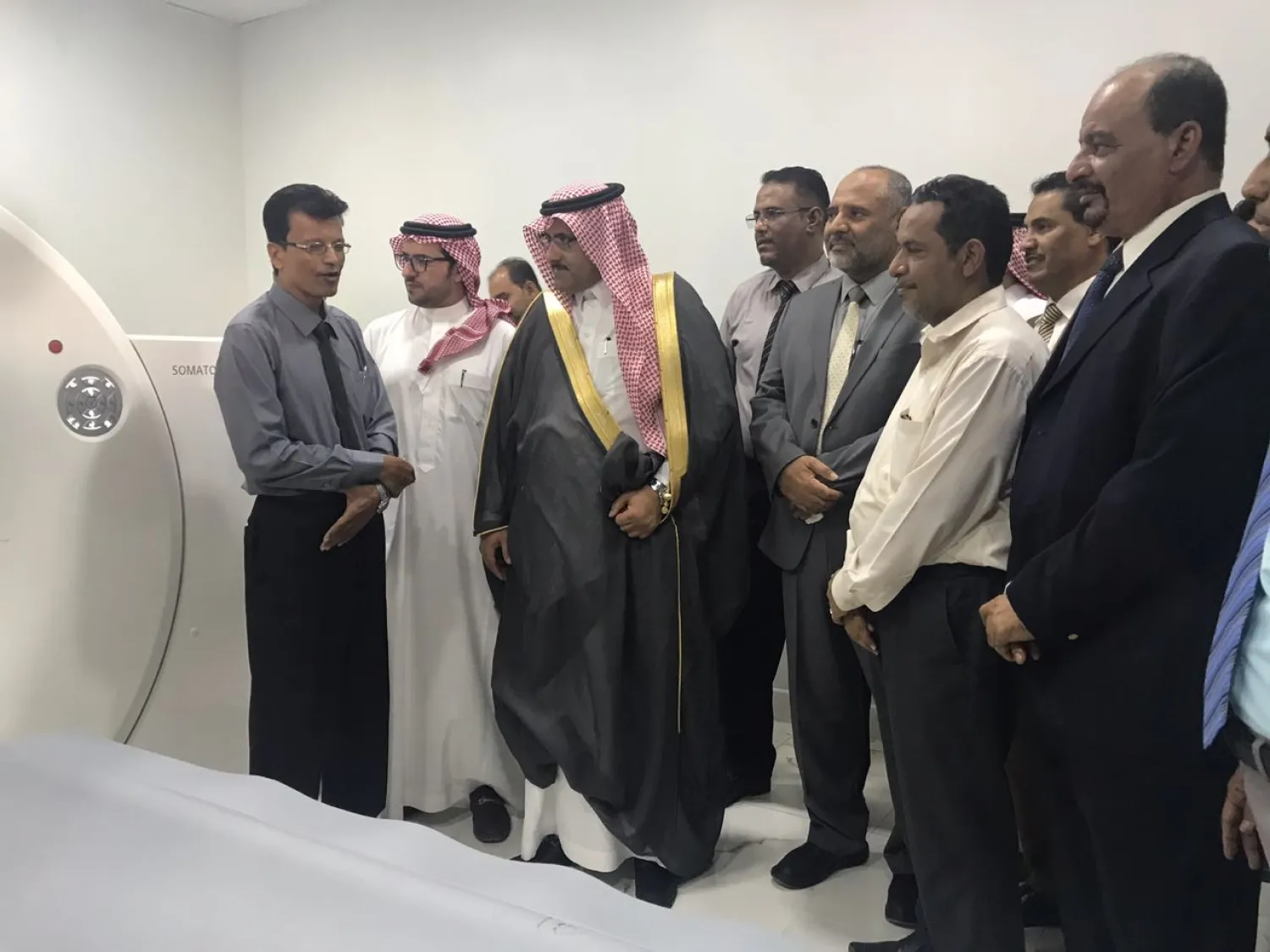The Saudi Reconstruction Program in Yemen (SRPY) announced a campaign to provide essential medical supplies to Seiyun General Hospital in the Hadramout province.
In addition to funding improvements to critical facilities, SRPY provided the hospital— Hadramout Valley’s largest—with 191 pieces of modern medical equipment and supplies, dramatically improving medical service capability.
Saudi Arabia’s Ambassador to Yemen and SRPY Supervisor Mohammed bin Saeed Al-Jabir said: “It is not enough to simply improve existing facilities. Hospital personnel must be provided with the proper resources to do their jobs.”
“The additional equipment and supplies expand our ability to provide services to our patients,” added the hospital administrator. “Assistance from SRPY is coming at a time when we need it most.”
Medical supplies and equipment provided include a CT scan machine, portable and fixed medical scanners, and operating room arc imaging and ultrasonic wave machines.
Enhancements at the Seiyun General Hospital also included its dental clinic and other departments.
The hospital administrator added: “The dental clinic is now fully supplied and the eye clinic, emergency department and family medicine clinic are equipped to render comprehensive service to members of our community.”
Last week, Yemeni President Abdrabbuh Mansur Hadi and Ambassador Al-Jabir announced eight projects currently being implemented in neighboring Al Mahra governorate.
SRPY is carried out under the directives of Custodian of the Two Holy Mosques King Salman bin Abdulaziz and Crown Prince Mohammed bin Salman, Deputy Prime Minister and Minister of Defense.
SRPY links expertise, resources and state-of-the art technology in Yemen, enabling companies specialized in upgrading critical infrastructure, including civil, industrial, agricultural, educational and medical facilities, to expand their capabilities and capacity.
The program invests in hope by increasing jobs and economic opportunities for all of the nation’s citizens and welcomes international efforts to invest in a resilient future for Yemen.









